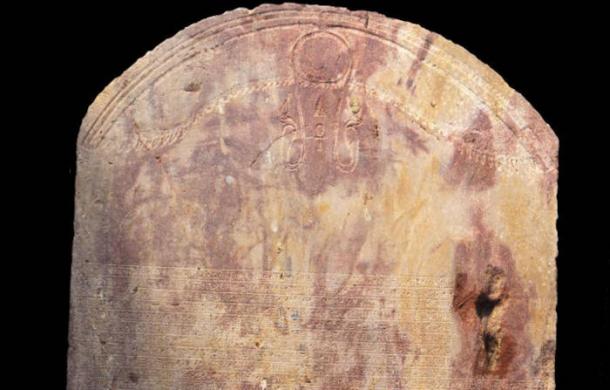Lifestyle
Egyptian Archaeologists Uncover Complete Canopus Decree

Archaeologists in Egypt have made a groundbreaking discovery at Tell el-Pharaeen, located in Sharqia Governorate. They have unearthed a complete hieroglyphic version of the Canopus Decree, a monumental artifact dating back to 238 BC. This find is significant as it marks the first intact copy of the decree discovered in over 150 years, prompting experts to compare it to the famed Rosetta Stone in its potential to enhance our understanding of ancient Egyptian civilization.
The Canopus Decree was originally issued by King Ptolemy III and is crucial for understanding the language and administration of the Ptolemaic period. The recently uncovered stela is particularly notable for its exclusive use of hieroglyphics, differing from previously known versions that included Demotic script and Greek text. This unique characteristic provides scholars with a fresh perspective on the linguistic and cultural practices of the time.
According to the Egyptian Ministry of Antiquities, the discovery is a result of ongoing excavation efforts aimed at uncovering the rich history of the Nile Delta region. The archaeologists have emphasized the importance of this find, stating that it could significantly advance research in the fields of archaeology, linguistics, and history.
The Canopus Decree itself serves as a record of the religious customs and administrative decrees of the Ptolemaic dynasty, illustrating the interplay between governance and religion in ancient Egypt. By providing a complete hieroglyphic version, researchers hope to better understand the nuances of the language used during this influential period.
The significance of this discovery extends beyond mere historical interest; it also has implications for cultural heritage and tourism in Egypt. The prospect of showcasing such a rare artifact may attract greater interest in Egypt’s archaeological sites, potentially boosting local economies through increased visitor numbers.
As excavations continue at Tell el-Pharaeen, archaeologists remain optimistic about uncovering further artifacts that can illuminate the complexities of ancient Egyptian society. The Canopus Decree stands as a testament to the enduring legacy of one of history’s most fascinating civilizations, and its retrieval marks a pivotal moment in the ongoing exploration of Egypt’s ancient past.
This remarkable find highlights the dedication of Egyptian researchers and their commitment to preserving and understanding the rich tapestry of their nation’s history. As scholars begin to analyze the complete Canopus Decree, the implications for our understanding of the Ptolemaic era will undoubtedly grow, opening new avenues for research and discovery in the field of Egyptology.
-

 Entertainment1 month ago
Entertainment1 month agoAimee Osbourne Joins Family for Emotional Tribute to Ozzy
-

 Politics2 months ago
Politics2 months agoDanny Healy-Rae Considers Complaint After Altercation with Garda
-

 Top Stories4 weeks ago
Top Stories4 weeks agoIreland Enjoys Summer Heat as Hurricane Erin Approaches Atlantic
-

 World2 months ago
World2 months agoHawaii Commemorates 80 Years Since Hiroshima Bombing with Ceremony
-

 Top Stories2 months ago
Top Stories2 months agoFianna Fáil TDs Urgently Consider Maire Geoghegan-Quinn for Presidency
-

 World2 months ago
World2 months agoGaza Aid Distribution Tragedy: 20 Killed Amid Ongoing Violence
-

 World2 months ago
World2 months agoCouple Convicted of Murdering Two-Year-Old Grandson in Wales
-

 World2 months ago
World2 months agoAristocrat Constance Marten and Partner Convicted of Infant Murder
-

 Top Stories2 months ago
Top Stories2 months agoClashes Erupt Between Far-Right Groups and Migrants in Spain
-

 Top Stories2 months ago
Top Stories2 months agoHistoric Dalkey Pub The Queens Reopens Under New Management
-

 World2 months ago
World2 months agoTrump Defends FBI Deputy Director Amid Epstein Files Controversy
-

 Politics2 months ago
Politics2 months agoTragic Crowd Surge at Gaza Aid Center Claims 20 Lives









